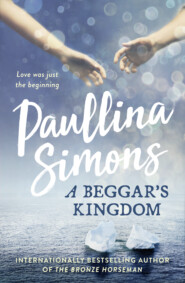По всем вопросам обращайтесь на: info@litportal.ru
(©) 2003-2024.
✖
The Summer Garden
Настройки чтения
Размер шрифта
Высота строк
Поля
“I won’t, son. I’m full.”
“That’s funny,” said Anthony. “Mama and I met a man today. A colonel. Nick Moore.”
“Oh, yeah?” Alexander looked off into the distance, taking another deep drag of the cigarette from Tatiana’s hands as she was bent to him. “What was he like?”
“He was like you, Dad,” Anthony replied. “He was just like you.”
Red Nail Polish
In the middle of the night, the boy woke up and screamed. Tatiana went to comfort him. He calmed down, but would not let her leave him alone in his bed, even though it was just across the nightstand. “Alexander,” she whispered, “are you awake?”
“I am now,” he said, getting up. Moving the nightstand out of the way, he pushed the two twin beds together so Anthony could lie next to his mother. They tried to get comfortable, Alexander against the wall spooning Tatiana spooning Anthony, who instantly fell asleep in his mother’s arms. Tatiana only pretended to fall back to sleep. She knew that in a moment Alexander would get up and leave the bed.
And in a moment, he was gone. She whispered after him. Shura, darling. After a few minutes, she got up, put on a robe and walked outside. He wasn’t in the kitchen or the yard. She looked for him all the way down to the dock. Alexander was sitting on the bench where Tatiana usually sat waiting for him to come back from the sea. She saw the flare of the cigarette in his mouth. He was naked except for his skivvies, and he was shivering. His arms were crossed over himself, and his body was rocking back and forth.
She stopped walking.
She didn’t know what to do.
She never did know what to do.
Turning around, she stumbled back to their room and lay in bed blinkless, staring beyond Anthony’s sleeping head until Alexander came back, icy and shaking, and fitted in behind her. She didn’t move and he said nothing, made no noise. Just his cold arm went around her. They lay there until four when he got up to go to work. As he ground the coffee beans in the pestle, she buttered a fresh roll for him, filled his water containers and made a sandwich for him to take on the boat. He ate, drank his coffee, and then left, his free hand traveling under her chemise for a moment to rest on her bare buttocks and then between her legs.
They had been on Deer Isle exactly five minutes, breathing in the salt water of the afternoon and seeing the lobster boats returning to shore, and already Tatiana said that a month would not be long enough to spend here. Their agreement was just a month in every state and then onward. Forty-eight states, forty-eight months, beginning with Deer Isle. “A month won’t be enough here,” she repeated when Alexander said nothing.
“Really?” And nothing more.
“You don’t think it’s great here?”
A small ironic something crossed his silent mouth in reply.
On the surface, Stonington had everything they needed: a general store, a variety store, a hardware store. The general store sold newspapers, magazines and, most important, cigarettes. It also sold coffee beans and chocolate. On North and South Deer Isle, there were cows—thus milk, cheese and butter—and chickens that laid eggs. Grain was shipped in by the shipload. There was plenty of bread. Plenty of apples, peaches, pears, corn, tomatoes, cucumbers, onions, carrots, turnips, radishes, eggplant, zucchini. There was cheap and plentiful lobster, trout, sea bass, pike. There even was beef and chicken, not that they ever ate it. Who’d ever believe the country had been through a Depression and a world war?
Alexander said ten dollars a day wouldn’t be enough to live on.
Tatiana said it would be plenty.
“What about high-heeled shoes? Dresses for you? Coffee? My cigarettes?”
“Definitely not enough for cigarettes.” She forced a smile, seeing his face. “I’m joking. It’s enough for everything.”
She didn’t want to mention that the amount he was spending on cigarettes was nearly what they were spending on food for the week for all three of them. But Alexander was the only one working. He could spend his money on whatever he liked.
She had been talking English to him as she drank her Sunday coffee. He was responding in Russian to her as he smoked his Sunday cigarettes and read his Sunday paper.
“There’s trouble brewing in Indochina,” he said in Russian. “The French owned it, and lost it to the Japanese during the war. The Japanese lost the war, but they don’t want to leave. The French, rescued by the victors and thus on the side of victory, want their colony back. The Japanese are protesting. While staying neutral, the U.S. are helping their ally France, but they’re really between a rock and a hard place since they’re also helping Japan.”
“I thought Japan is no longer allowed to have an army?” Tatiana asked in English.
And he replied in Russian, “They’re not. But they had a standing army in Indochina, and short of the U.S. forcing them out, the Japanese refuse to lay down their arms.”
She asked in English, “What’s your interest in all this?”
He replied in Russian, “Ah. In all this—because there just isn’t enough trouble—Stalin for decades has been courting a peasant farmer named Ho Chi Minh, paying for his little educational trips to Moscow, feeding him vodka and caviar, teaching him the Marxist dialectic by the warm fire and giving him some old Shpagins and mortars, and some nice American Lend-Lease Studebakers while training and educating his little band of Vietminh right on Soviet soil.”
“Training the Vietminh to fight the Japanese whom the Soviets fought and hate?”
“Believe it or not, no. To fight the former Soviet allies, the colonial French. Ironic?” Alexander stubbed out his cigarette, put down his paper. “Where’s Anthony?” he said in a low voice in English, but before he could even reach for her wrist, Anthony walked into the kitchen.
“I’m here, Dad,” he said. “What?”
They needed a room for just themselves, but Anthony didn’t think so, and besides, the old landlady didn’t have one. The choice was one tiny room next to the kitchen in a vertical house overlooking the bay—with two twin beds, and a bath and toilet down the hall—or their camper with one full bed, and no bath and no toilet.
They had looked at other houses. One had a family of five living in it. One had a family of three. One a family of seven, all women. Generations and generations of women, filling up the white houses, and old men going out on the boats during the day. And younger men—sometimes whole, sometimes not—trickling back from war.
Mrs. Brewster lived alone. Her only son was not back, though Tatiana didn’t think he was out with the troops. Something in the way the old lady said, oh he had to go away for a little while. She was sixty-six years old and had been a widow for forty-eight of them: her husband died in the Spanish-American War.
“In 1898?” Tatiana whispered to Alexander.
He shrugged. His heavy hand was squeezing her shoulder, telling her he didn’t much like Mrs. Brewster, but Tatiana was happy to have his hand on her in any capacity. “This is your husband, right?” Mrs. Brewster had said suspiciously before she rented out the rooms to them. “He’s not just some …” She waved her hand around. “Because I won’t have that in my house.”
Alexander stood mute. The three-year-old said, “Have what?”
The landlady narrowed her eyes at Anthony. “This your father, boy?”
“Yes,” said Anthony. “He is a soldier. He was in a war and in prison.”
“Yeah,” said Mrs. Brewster, looking away. “Prison’s hard.” Then she narrowed her eyes at Tatiana. “So where’s your accent from? Doesn’t sound American to me.”
Anthony began to say, “Russ—” but Alexander pulled his son behind him, pulled Tatiana behind him. “Are you going to rent us the room or not?”
She rented them the room.
But now Alexander asked Tatiana, “Why did we buy the Nomad if we’re not going to stay in it? We might as well sell it. What a waste of money.”
What would they do when they got to the deserts of the west? she wanted to know. To the wine hills of California? To Hell’s Canyon in Idaho? Despite his sudden frugality, Alexander didn’t sell the camper, the dream of it still so fresh. But this was the thing about him: though Tatiana knew he liked the idea of the camper—he was the one who wanted to buy it—he didn’t particularly like the reality of it.
Tatiana got the impression he felt that way about a number of things in his new civilian life.
The camper had no running water. And Alexander never stopped washing one part or another of his body. Living too close for too many years to men at war had done this to him. He washed his hands obsessively; true, much of the time they had fish on them, but there wasn’t enough soap or lemons and vinegar in all of Maine to get Alexander’s hands clean enough for his liking. They had to pay Mrs. Brewster an extra five dollars a week for all the water they were using.
He may have liked the idea of a son, but the reality of a three-year-old boy being with them every waking moment, never leaving his mother’s side, sleeping in the same room with them! coming into bed with them at night! was too much for a soldier who had never been around children.
“Nightmares are hard for a little boy,” Tatiana explained.
“I understand,” he said, so polite.
Alexander may have once liked the idea of a wife, but the reality of one, Tatiana wasn’t so sure about either. Maybe he was looking for Lazarevo in every day that they lived, though from the way he acted, she fully expected him to say, “What’s Lazarevo?”











